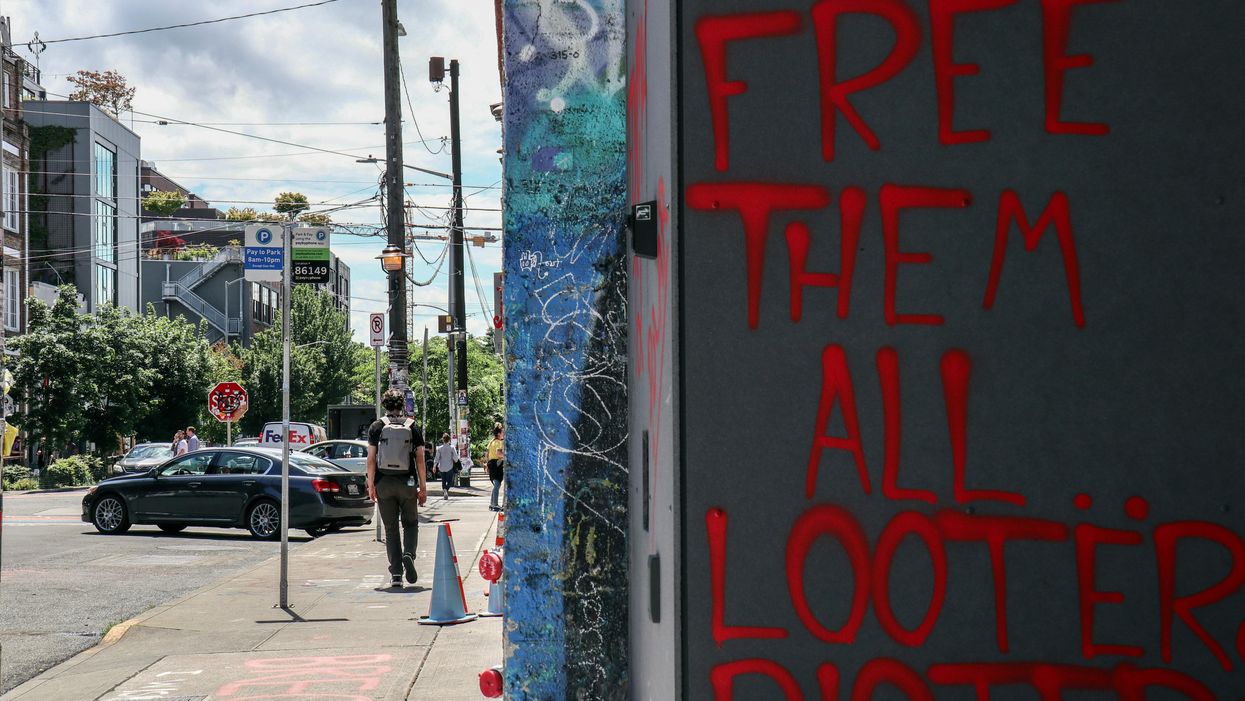
Photo by Toby Scott/SOPA Images/LightRocket via Getty Images

An interesting tack
Seattle officials are considering changing the current criminal code to exempt criminals from prosecution if it is deemed that suspects' survival depended on committing acts of trespassing, theft, or assault.
According to the Daily Wire on Monday, the Seattle City Council is mulling over the changes, which were first broached in October.
In October, KOMO-TV reported on a proposed ordinance — courtesy of Councilmember Lisa Herbold and King County Director of the Department of Public Defense Anita Khandelwal — that would "excuse and dismiss ... almost all misdemeanor crimes committed in Seattle by offenders who could show either: symptoms of addiction without being required to prove a medical diagnosis; symptoms of a mental disorder; or poverty and the crime was committed to meet an 'immediate and basic need.'"
The station reported, "For example, if a defendant argued they stole merchandise to sell for cash in order to purchase food, clothes, or was trying to scrape together enough money for rent ... [t]he accused could not be convicted."
The ordinance, nicknamed the "poverty defense," according to the Daily Wire, would cover all misdemeanor crimes except domestic violence cases and DUIs.
According to KUOW-FM, Khandelwal in early December said, "In a situation where you took that sandwich because you were hungry and you were trying to meet your basic need of of satisfying your hunger; we as the community will know that we should not punish that. That conduct is excused."
Khandelwal added that the current system in place is not meeting anyone's needs.
"This is not that we don't care about the business community or about people who have experienced harm," Khandelwal explained. "It is that we know that this process — this processing of human beings through the system — is harmful to our clients and again very racially disproportionate, and also not getting business owners what they need, either."
Not all people are on board with the move, according to the outlet.
In a statement to Fox News, Seattle-area radio host Jason Rantz said, "We have this culture of lawlessness. We have a prolific offender problem where pretty much the same 100 or so individuals keep breaking the law, not seeing any punishment, and then doing the same thing over and over and over again."
"And so," he continued, "all you're doing is making it easier for those people to continue that behavior. And, the fear is, of course, you know, 'Does this only apply to Seattle residents?' And if not, does that mean someone can come from outside of the region who is destitute, who is low income, [and] break a whole bunch of laws knowing that if you do it in Seattle, you're not going to get into any trouble?"
Former Seattle City Councilmember Tim Burgess has also spoken out about the ordinance.
"It leans on the scales heavily in favor of certain individuals based on status, and it says to others, 'You don't matter,'" Burgess explained.
Former mayoral public safety adviser Scott Lindsay added, “It's a green light for crime. If you are engaged in 100 different misdemeanors that are in our criminal justice system code, you are not going to be held liable. You are not going to be held accountable."
Fox News reported that crime in Seattle has been on the rise since the summer's CHAZ protests, and the city saw a 525 percent spike in criminal activity as a result.
Fox said that documents from a Tuesday city council briefing "say the council would be required to specify whether the rule would apply solely to someone committing a misdemeanor to meet immediate basic needs."
The Seattle City Council will continue to work on the proposed ordinance in 2021.